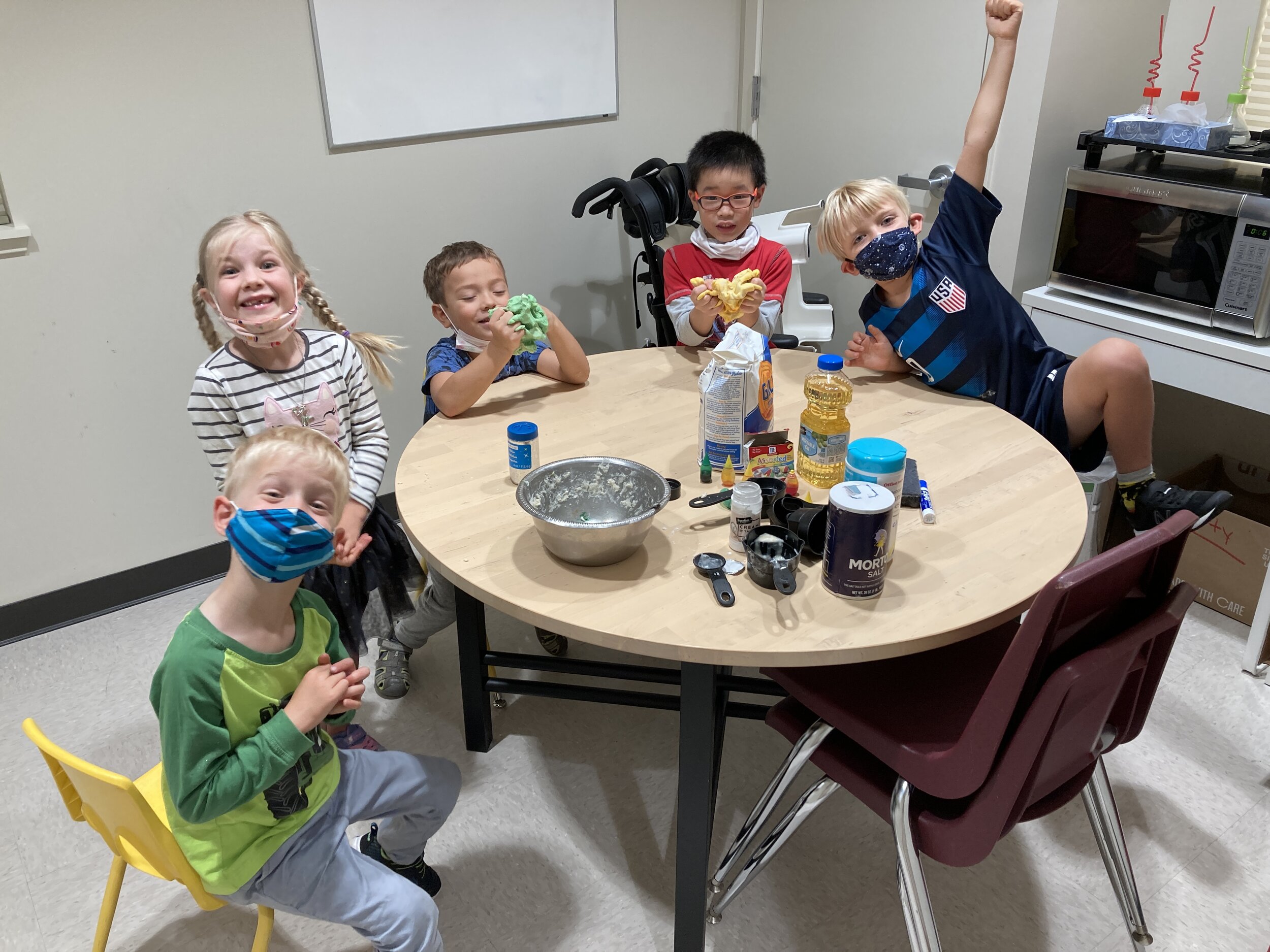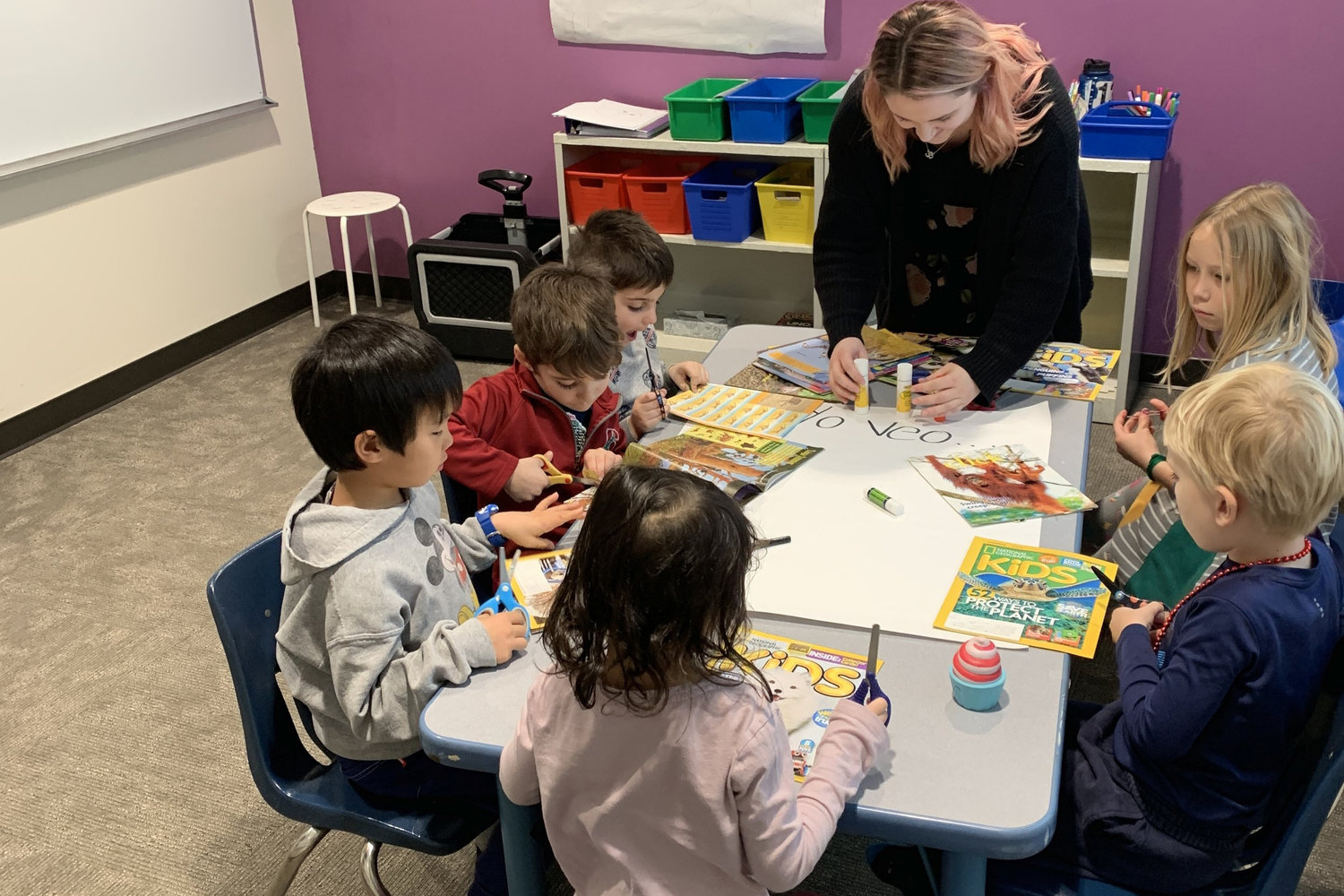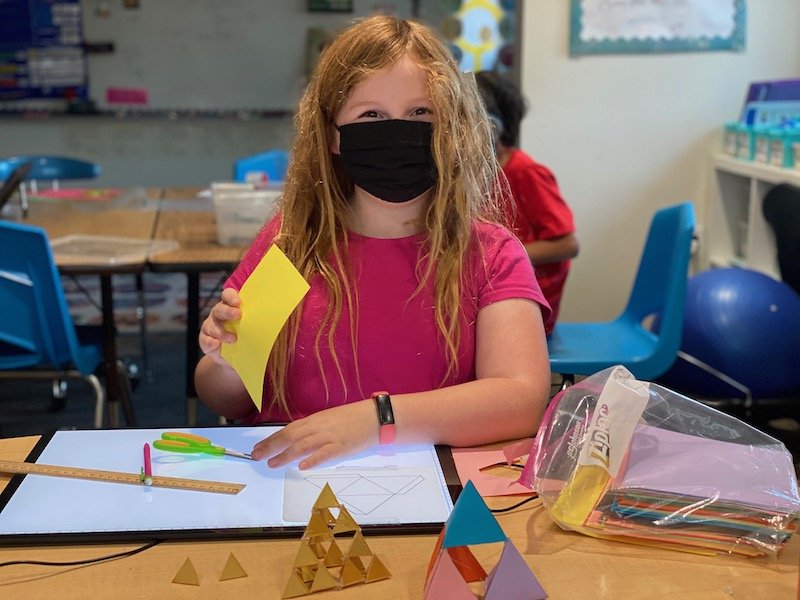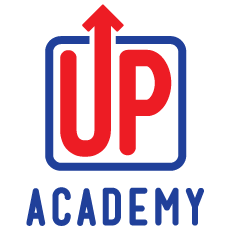Academic programming
UP Academy is a progressive TK – 8 micro-school that utilizes a concept and project based curriculum to promote whole child growth. Our graduate standards of growth mindset, scientific mind, social emotional intelligence, executive functioning, and influencing action allow students to apply the knowledge, skills and concepts they master in school to the real world.
Our goal is to help students to reach their ultimate potential. For some students that’s standing up, it’s learning up, it’s moving up, it’s reaching up. It’s about looking to achieve more and always do your best so you can reach your ultimate potential.
We believe that a good educational model isn’t everyone getting the same thing, it’s everyone getting what they need to be successful.


Our Students Acquire Deep Knowledge Through REBEL Project Experiences
Our approach cultivates a generation of creative, curious, free thinking, problem solvers through an education that embraces differing abilities.
Rigorous academics are a cornerstone of students’ development and advancement at UP Academy. Educators help students plan and direct their studies to match their goals. Students participate in projects to enhance learning, gain new skills and make academics relevant.
Project Based Learning – learners explore concepts through experiences and apply what they learn to solve problems and reflect on the results, receiving instruction along the way. This dynamic, inquiry based method is the opposite of rote memorization.
Differentiated Learning – students are grouped by their level of skill and challenge, not by age or grade. This allows each student to work at their “just right” level of challenge.
Inquiry Based Learning – by asking questions and developing the skills to research and find their own answers we build students confidence while encouraging their curiosity.
Neurodevelopment Program – We believe every child is capable of reaching independence and gaining the skills necessary to be successful in life – we help our disabled students achieve this via our commitment to assumed competence, conductive education, and collaboration.
Emotional intelligence requires self-awareness, self-regulation, motivation, empathy, and social skill. When young students develop and practice these qualities, they have the ability to work well with others and are effective in leading change.
Physical Movement improves the flow of blood in the brain, helping students to learn more easily. Exercise improves mood which creates a positive effect on cognitive functioning and emotional intelligence. In addition, movement stimulates production of muscle protein and the genes responsible for learning and memory. Kids need to move, it energizes and revitalizes so they can focus and learn.
Philosophy
UP Academy students are contributing global citizens who are fearless advocates for their health, community, and ideas.


Elementary School Ages 4-11 years
What does an UP Academy education look like?
When I ask my daughter and her friends to describe school at UP Academy they use words like joy, magic, and special. They’re describing the “love of learning” feeling many of us want for our kids. I wanted to try to describe a little of this “magic” to you!
One of the reasons we first considered UP Academy was because of their small class sizes. The benefit of this was clear when just one week after my daughter started UP Academy her teacher came to me with insights that felt spot on. That partnership of communication and understanding has continued throughout our years at UP Academy. From my daughter’s personality, to her strengths, interests, and things she struggles with or wants to work on, I feel like UP teachers really know my daughter.
Another reason we came to UP Academy was because we felt like the structure of a traditional school experience wasn’t a great fit. We wanted something more. Something hands-on and engaging. UP uses a model of deep interdisciplinary project based learning – these projects are intensive and each topic spans a school quarter so students have time to really dig in and explore.
Some of my daughter’s favorite project themes so far have included:
1. The Ecosystem project where students learned about different ecosystems and the adaptations that exist for life in these environments. The students then designed their own planet, illustrated the environment, and created an animal that had the necessary adaptations to live in that environment. They built their animal out of all types of materials and my daughter was thrilled that they were given a lot of time to figure out and problem solve building their animal.
2. Another topic she enjoyed was The Brain. My daughter and her classmates learned about the functions of the different areas of the brain and then each student selected an area of focus for their research. My daughter chose the frontal lobe because she has an interest in logic. She researched the frontal lobe, put together a poster with facts about the front lobe, and designed engaging activities for those looking at her display to demonstrate “The Fabulous Frontal Lobe.”
3. In their community and conflict unit students learned about conflict and peace, read books and went on field trips with this theme, and then interviewed someone who has been directly impacted by world conflict. My daughter chose to interview her grandfather, a veteran, sparking an excellent intergenerational connection opportunity. She wrote up her grandfather’s story of being involved in a conflict and created an automaton of a plane and paratrooper based on his experience. Grandpa was definitely talking about it for weeks with his friends!
4. In their origin theme students chose a topic to study in depth. Topics in the class varied widely with projects about the origins of service dogs, robotics, ciphers, humans, space travel, and architecture. My daughter choose to study the origin of wheelchairs and created deliverables including a virtual timeline of wheelchair history and improvements, a robotic wheelchair and ramp with a study of safe wheelchair inclines for her robotic wheelchair, mock magazine covers and articles about wheelchairs, a mad-lib about wheelchairs, and a wheelchair pinball “machine.” She was noticing wheelchair and accessibility connections in the real world for weeks during this theme!
In working on these projects students spend time working together as a class, break into small groups, and work individually on components that are driven by their own interests and style of learning. As students get older they often get to choose how they want to demonstrate their learning. These projects integrate executive function and academic skills such as time management, organization, note taking, research, typing, learning computer systems, and more.
In addition to school wide project based learning themes students also engage in individual passion projects during intersessions, with their teacher as coach. Two passion project topics my daughter really enjoyed were :
1. Sierpinski triangles where she researched Sierpinski triangles and then decided to hand draw a paper model, make a 3D origami model, and create a 3D model in tinkerCAD and print and assemble. She was able to share all she learned about the topic with her peers.
2. Another intercession passion project she decided to learn to solve a rubix cube – she started with a 2×2 and then a 3×3. It was fun and hard work and is still something she enjoys at home!
In addition to project based learning students also have daily math and language arts, three times per week language classes (Mandarin or Spanish), as well as weekly art, music, and P.E. Math and language arts include differentiated learning – with acceleration and support both offered. Beyond these daily lessons UP Academy integrates exciting theme days, field trips, and of course lots of play!
Written by Julie – mom of a 5th grader
+ Neurodevelopment Program
Giving students of all abilities the skills to succeed in a world we can’t imagine.
Our unique Neuro-development program is the first in the world focused on children with neuromotor challenges like cerebral palsy.
Assumed competence we believe that when children are given expectations they can thrive. If your child has been in a special class, has never been challenged, or the current educators are unsure of his or her ability to learn, this model will be new to you, and new to your child. In order to fulfill our commitment to assume competence in every student, your child may be granted a trial acceptance to make sure it’s a great fit. But we’ve found over and over that, when given expectations, most students rise to meet them.
Conductive education empowers students to find solutions to everyday problems. It is a multi-disciplinary approach that focuses on the specific student’s personality and learning style – allowing each child to see himself or herself as self reliant. A conductor is someone who has been trained to work confidently with children with neurological conditions. Our conductors at UP Academy shape the way a student interacts with his or her environment.
Collaboration requires all of our students to work together on projects that they help to create. Working together with different abilities, strengths, and weaknesses builds a growth mindset and creates empathetic action. All of our students learn together, learn from each other, solve problems together and collaborate on larger projects together.
+ Robotics
Join the peninsula’s premier elementary robotics program.
The award winning Up Academy robotics team is
back for the 2022-2023 season!
Competition Team
If you’re curious about competing with our team for
the 2022-2023 season please sign the interest list here.
+ UP Academy Math Circle
April 4 – June 1, 2023
Up Academy Math Circle is a math enrichment program for mathematically-motivated students who love solving complex problems and investigating advanced ideas. Math Circle encourages students to develop their identities as mathematicians and problem solvers through lively investigations of challenging math concepts in a supportive, collaborative, and joyful environment.
This year Up Academy Math Circle will have a program for mathematicians who learn at a 2nd-3rd grade level and those who learn at a 4th-6th grade level. Cost $600.
Grade 4 – 6
Thursday from 3:30-5:30 at Up Academy April 6th – June 1st
Enrollment: https://forms.gle/PhMnHc1niWNJvJrT7
Grade 2 – 3
Enrollment: https://forms.gle/ecDYntTHVFmkUUTK9
Tuesday from 3:30-5:30 at Up Academy April 4th – May 30th
